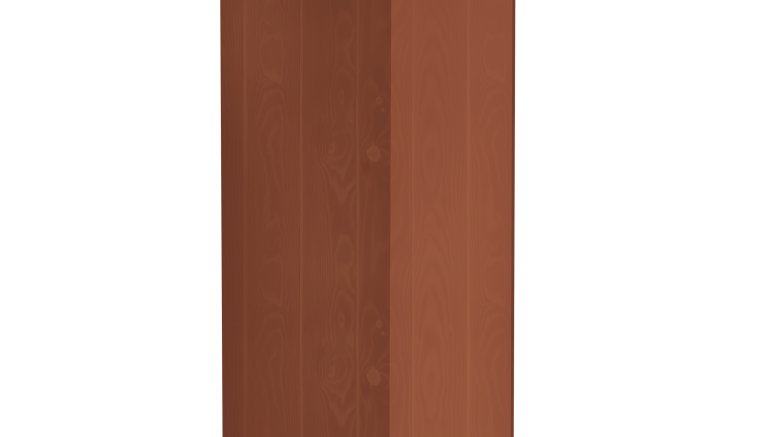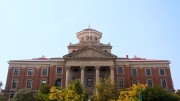We write as faculty who are part of the Palestine Teach-In Collective. We seek to address bad-faith criticisms and attempts to cancel our event, “Palestine and Genocide: Reflections on Imperialism, Settler Colonialism, and Decolonization,” a teach-in and roundtable that took place on Nov. 24.
This event included 14 speakers with multiple perspectives from a range of academic areas: English literature, cultural studies, genocide studies, women’s and gender studies, Indigenous studies, Black studies, history, peace and conflict studies, philosophy, environmental studies, critical race studies and decolonial studies.
The event was cross-institutional and cross-national. It comprised and was sponsored by colleagues who are Métis, queer, Nigerian, East-Indian Caribbean, white Canadian (with multiple ethnic heritages), South Korean Canadian, Palestinian (Christian and Muslim), Jewish and Indian Canadian. It is hard to think of a one-day event that could be more diverse, inclusive or respectful of multiple perspectives from our communities.
Claims that our event was somehow imbalanced, non-inclusive or biased are racist: they confuse perspective with political ideology and reduce the richness of our actual diversity.
The week prior to the event, Liberal Member of Parliament Ben Carr used his platform to call our “academic integrity” into question, arguing that the university had abdicated its responsibility by letting the event go forward. He made unfounded alignments between our invited speakers and antisemitism that were patently false. His words worked to shroud the event in controversy and fuel wider criticism that made our speakers feel so unsafe that some were forced to withdraw entirely.
In an organized backlash that involved Zionist colleagues and community leader Belle Jarniewski, our jobs were threatened on social media, and we endured many life-threatening comments on Facebook pages and on X. The result of this attack was that many of us felt unsafe doing the event from campus and instead Zoomed in from home, and those who were on campus required extra security.
Our teach-in was again pre-emptively denigrated the day before our event took place by professor and director of peace and conflict studies at the University of Manitoba, Adam Muller. He was interviewed by CBC Radio on Nov. 23. Muller stated that our collective lacked expertise and accused us of “bias.” Such undermining comments about colleagues and their clear expertise are shameful and expose Muller as not practicing the even-handedness and “respect” he supposedly espouses.
He branded the event a “lost opportunity,” “not doing everything it could be doing to promote peace.” This was a veiled accusation that we support violence and are undermining a solution that would protect life. On the contrary, our invocation of the word “genocide” comes from our collective conviction that every life is precious and that the Israeli attacks on Gaza that have cost upwards of 15,000 lives in eight weeks must stop immediately.
Muller stated that it is “debatable” whether genocide is occurring in Palestine. The teach-in referenced many organizations that are naming this as genocide. Peace does not exist under settler-colonial occupation. Palestine has not known peace since 1948.
Muller also criticized our inclusion of professor Judith Norman, who is Jewish and a member of the Jewish Voice for Peace. Muller’s criticism, implying that professor Norman does not speak from an authentic Jewish perspective, tokenizes anti-Zionist Jewish voices who commit to peace by naming the violences of Zionist settler colonialism.
As Norman asserted in her talk, “Zionism is not Judaism. Zionism uses Jewish identity as ideological cover for a settler colonialist project.” This is a perspective shared by many Jewish people and organizations worldwide, such as Jews Against White Supremacy.
We see Muller’s comments as a clear attempt to silence us, prevent academic freedom and gatekeep intellectual thought and discourse in ways that replicate settler colonial power itself. It is not for settlers to dictate the terms of our intellectual inquiry into genocide and empire. We centre the voices and perspectives of the oppressed and their rightful desire for freedom.
We remain shocked that those familiar with the fundamental principles of academic freedom — the most important collective right conferred upon scholars — could so invidiously invoke it to silence and slander an event before it took place. Scholarly work is not the same as journalistic inquiry and does not require neutrality, unbiased opinion or an “all sides” approach to discussion. There is overwhelming support for the state policies of Israel from the United States, the United Kingdom, Canada and many institutions worldwide. The balance that is needed is one that values Palestinian life.
We are grateful to those who encouraged us to push ahead despite these criticisms, and for everyone who fought for our right to hold this event and to hear directly from those with lived experience of colonization, dispossession and oppression. We are grateful that the University of Winnipeg Faculty Association supported our academic freedom and that our university allowed space for this important conversation that included global voices. We feel this bodes well for a strong culture of academic freedom and equitable learning in the future at the University of Winnipeg.
All of the premature criticisms of our event were addressed in our discussions. We are collectively proud of the intellectual exchange and careful rigour that characterized this event and, as many of the hundreds of people who attended have already commented, there was absolutely nothing antisemitic or hateful about the presentations.
On the contrary, viewers said they learned vital truths about the nuanced history and important voices of the colonized. They have sent us messages saying that their understanding of the situation in Palestine was sharpened by this event and that they felt educated and illuminated by the lived experiences and scholarly expertise shared.
We accomplished all this in the face of McCarthyist attempts to silence us, and we urge other institutions to follow U of W’s lead and let these conversations take place, free from censorship and censure. What are universities for if not to hold space for these difficult and important discussions?



